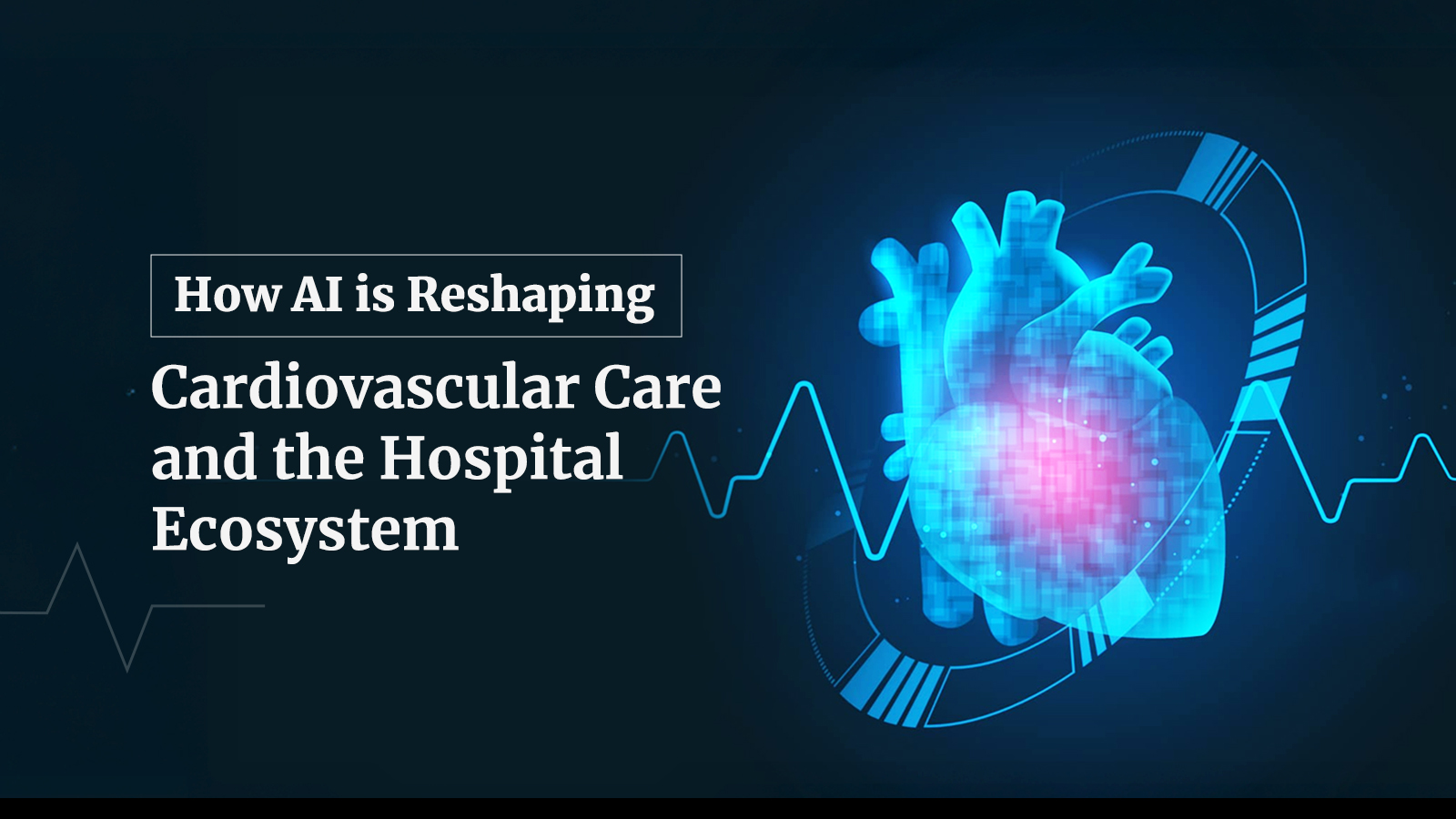The rise of Artificial Intelligence (AI) has redefined nearly every aspect of healthcare — but perhaps its most transformative impact can be seen in cardiovascular medicine. Once reliant solely on human expertise and traditional diagnostics, cardiology is now entering a new era powered by intelligent algorithms, predictive analytics, and real-time data.
As hospitals evolve into smart ecosystems and AI integrates deeper into medical workflows, heart care is being reimagined — becoming more precise, proactive, and personalized. From early diagnosis to post-treatment monitoring, AI is revolutionizing how doctors, patients, and hospitals approach heart health.
At Artema Med, we explore how this AI-driven evolution is shaping the future of cardiovascular care and transforming modern healthcare as we know it.
1. The Changing Face of Cardiology in the AI Era
Cardiovascular disease remains the world’s leading cause of death, claiming millions of lives each year. Despite technological advances, challenges such as delayed diagnosis, treatment complexity, and rising healthcare costs persist.
AI addresses these challenges by empowering cardiologists with data-driven intelligence. Through machine learning models, advanced imaging tools, and real-time monitoring systems, AI enhances precision and efficiency at every step — from diagnosis to recovery.
Today, AI doesn’t replace cardiologists; instead, it amplifies their capabilities, offering new ways to interpret data, predict outcomes, and deliver personalized care. This fusion of human expertise and artificial intelligence marks the beginning of a new age in heart health.
2. AI-Powered Early Detection and Diagnosis
Timely diagnosis is key to preventing heart disease progression, and AI is making this process faster and more accurate than ever before.
AI-powered tools analyze vast datasets from electrocardiograms (ECGs), echocardiograms, and CT scans to detect early signs of cardiovascular abnormalities that may be invisible to the human eye.
For example:
- Machine learning algorithms can detect arrhythmias, coronary artery disease, and heart failure at early stages.
- AI systems interpret imaging data to identify plaque buildup, vessel narrowing, and other risk indicators.
- Predictive AI models analyze lifestyle and genetic data to forecast an individual’s likelihood of developing heart disease.
These innovations enable physicians to act before symptoms escalate, ensuring earlier interventions and better survival rates.
3. Precision Medicine and Personalized Cardiac Care
No two hearts are alike — and AI is helping physicians design personalized treatment plans that reflect this uniqueness.
By analyzing patient-specific data such as genetics, lifestyle habits, and medical history, AI provides actionable insights into the best therapeutic strategies. This personalized approach allows cardiologists to:
- Recommend optimal medications and dosages.
- Adjust treatment based on real-time physiological changes.
- Predict how each patient will respond to certain drugs or procedures.
For patients recovering from cardiac surgery or living with chronic heart disease, AI-powered wearables track progress and alert physicians to irregularities. This continuous, data-informed feedback loop ensures smarter, safer, and more adaptive care.
4. Transforming Cardiac Imaging with AI
Cardiac imaging is one of the cornerstones of modern cardiology, and AI has revolutionized this field with precision and speed.
AI algorithms can now automatically interpret medical images, identify anomalies, and provide quantitative assessments in seconds. These systems reduce human error, save time, and deliver consistent, high-quality results.
For instance:
- AI-enhanced echocardiography can evaluate heart structure and function more accurately.
- AI in MRI and CT imaging allows early detection of minute changes that might indicate disease progression.
- Automated image segmentation tools help cardiologists pinpoint areas of concern with unmatched clarity.
By combining deep learning and computer vision, AI not only speeds up diagnosis but also gives physicians the confidence of data-backed accuracy.
5. Predictive Analytics: From Prevention to Proactive Care
AI’s most powerful contribution to cardiovascular care lies in its predictive capabilities. Instead of reacting to cardiac events after they occur, hospitals are now preventing them before they happen.
Predictive analytics uses AI to assess massive health datasets and identify patients at high risk of cardiac issues. For example, algorithms analyze heart rate variability, cholesterol levels, and lifestyle data to predict heart attack likelihood.
This enables clinicians to intervene early — through medication, diet, or behavioral change — significantly reducing hospital admissions and mortality rates.
The future of cardiology is proactive rather than reactive, with AI empowering both patients and doctors to take preventive steps toward long-term heart health.
6. Smart Monitoring and Remote Cardiac Management
The integration of AI with wearable and Internet of Things (IoT) devices has transformed how heart health is monitored and managed.
Smart devices such as ECG patches, watches, and biosensors continuously record vital signs and send the data to cloud-based AI systems. These systems:
- Detect irregular patterns in heart rhythm.
- Alert medical teams in real time during emergencies.
- Offer personalized insights for lifestyle management.
This remote monitoring model enables hospitals to maintain ongoing patient care beyond clinical walls. Patients gain independence, while physicians receive continuous feedback for timely adjustments and interventions.
With AI at the heart of digital monitoring, cardiovascular care becomes a 24/7 partnership between technology and healthcare professionals.
7. AI-Driven Efficiency in Hospital Operations
Beyond diagnostics and treatment, AI is transforming hospital operations, improving efficiency and reducing costs.
In cardiology departments, AI systems manage scheduling, resource allocation, and patient flow with precision. Predictive models forecast demand for ICU beds or catheterization labs, helping hospitals plan proactively.
AI also streamlines administrative processes — automating billing, report generation, and patient record updates — allowing healthcare professionals to spend more time on clinical tasks.
By optimizing workflows and minimizing errors, hospitals become more productive, cost-effective, and patient-centered.
8. Robotic Surgery and AI-Assisted Cardiac Procedures
AI is also reshaping the surgical landscape through robotic-assisted cardiac surgeries.
AI-driven robotic systems provide surgeons with high-definition visualization, motion precision, and predictive analytics during operations. These systems can analyze live data to guide the surgeon’s hand, enhancing accuracy and reducing surgical risks.
Such minimally invasive procedures lead to:
- Reduced blood loss and shorter recovery time.
- Fewer complications.
- Better patient satisfaction.
With AI, cardiac surgery is no longer just a manual skill — it’s an intelligent, data-supported process that improves safety and outcomes.
9. The Ethical and Data Privacy Imperative
While AI offers incredible benefits, its integration into healthcare must prioritize ethics and data privacy. Cardiac data is sensitive, and ensuring its protection is essential.
Hospitals must adopt robust encryption systems, transparent algorithms, and patient consent protocols. Additionally, AI models should be regularly audited to prevent bias and maintain fairness in clinical decision-making.
Ethical AI practices build trust between patients and providers, reinforcing confidence in technology-assisted care.
10. The Future: Smarter Hospitals and Healthier Hearts
AI’s evolution in cardiovascular medicine is still unfolding, but its trajectory is clear — it’s leading us toward smarter hospitals and healthier hearts.
Future innovations may include fully automated diagnostics, AI-guided preventive programs, and virtual cardiology assistants capable of continuous care management. Hospitals will operate as intelligent ecosystems, where data flows seamlessly and decisions are guided by real-time insights.
For patients, this means faster treatment, personalized attention, and improved outcomes. For doctors, it means better tools and smarter decisions. And for the healthcare system as a whole, it means greater efficiency and accessibility.
Conclusion
The AI revolution in cardiology represents far more than technological progress — it signifies a complete reimagining of heart care. By blending human expertise with machine intelligence, healthcare is becoming more precise, preventive, and patient-focused than ever before.
At Artema Med, we believe that the future of cardiovascular care lies in intelligent innovation. AI is not replacing the human heart of healthcare — it’s enhancing it, making every heartbeat count toward a healthier, smarter tomorrow.
Through AI-driven transformation, we’re not just treating diseases; we’re reshaping the very definition of care — one intelligent insight at a time.


